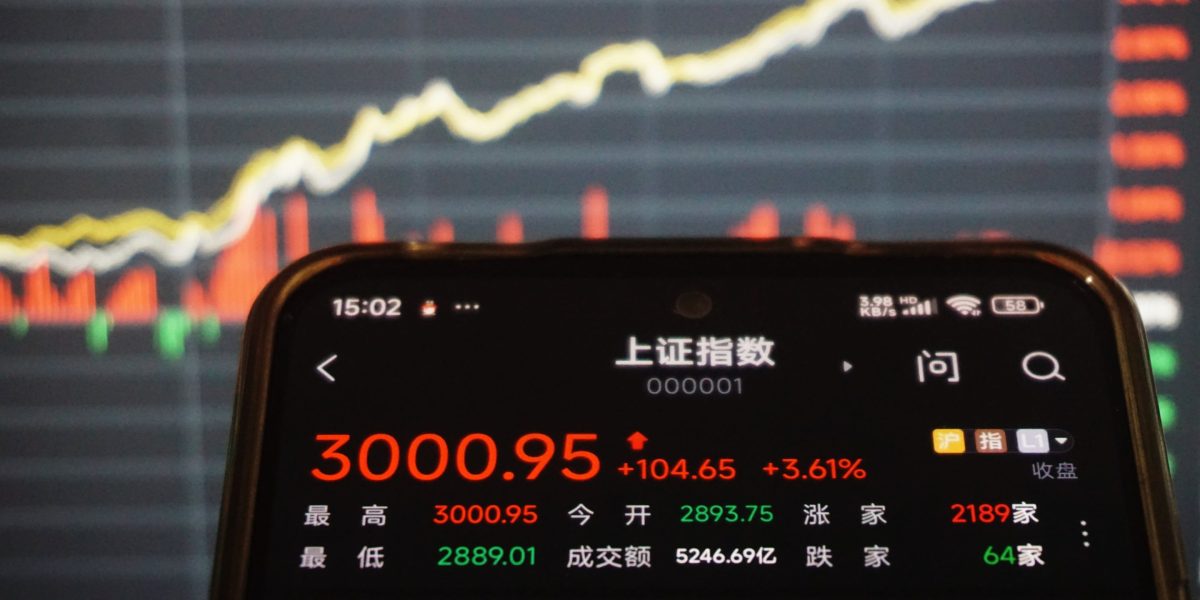Chinese stocks are having their best rally in years, as investor sentiment surged after officials unveiled new monetary stimulus measures and pledged to do more to support growth in the world’s second-largest economy.
And yet equity markets in mainland China have yet to fully take part. Markets in Shanghai and Shenzhen have been closed since Oct. 1, as China celebrated the weeklong National Day Golden Week holiday.
Chinese markets reopen Tuesday, allowing Chinese investors to rejoin the market rally. And shortly after it opens, a panel of senior officials led from the National Development Reform Commission is set to hold a press conference to brief reporters on the implementation of the stimulus measures, according to a notice from the state council. The panel will be led by the commission’s chairman Zheng Shanjie.
Hong Kong’s Hang Seng Index is up 21.5% since Sep. 24, when the People’s Bank of China unveiled its stimulus measures. U.S.-listed Chinese stocks have also surged; Alibaba is up 24.6% while Pinduoduo and Temu-owned PDD Holdings is up 35.6% over the same period.
“The participation of local investors after the National Day holidays is key,” said Daniel Lam, the head of equity strategy at Standard Chartered Bank Wealth Management CIO Office, in a Standard Chartered report published Monday.
“Overall, valuation levels are still depressed and Chinese equities are still offering an approximately 19% discount to Asia ex-Japan equities,” he wrote.
Chinese markets had a few trading days before going on break. The CSI 300, which tracks companies listed in Shanghai and Shenzhen, is up 24% since the stimulus announcement.
Earnings surprises and further stimulus could keep the rally going, predicts Sonija Li, head of retail research at Maybank’s MIB Securities. Several Chinese companies will release earnings reports this month. And Li suggests there may still be upside, as even after the recent rally, the price-to-earnings ratio for both the Hang Seng Index and the Shanghai Composite Index are still lower than their respective five-year average.
Beijing stimulus measures
Investors could now be more confident about the Chinese economy after the country’s central bank cut interest rates and the reserve requirement ratio—the amount of cash banks must hold as reserves—in the final week of September.
Soon afterward, three major Chinese cities lowered restrictions on property transactions, following central government comments on the need to stabilize the real estate market. A years-long property slump has helped to drag down the Chinese economy.
Chinese media suggested over the weekend that these measures are already bearing fruit. The Global Times, a state-backed outlet, said the Chinese property market showed “positive change” over the National Day holiday, citing higher on-site inquiries and increased promotional activity.
Yet investors may change their minds about China if Beijing isn’t forthcoming with more stimulus.
More fiscal support is needed for housing and social welfare spending, Morgan Stanley analysts wrote in a research note on Sunday.
The stock market could be vulnerable to pullbacks “without more positive catalysts,” warns a Bank of America report published Monday.


